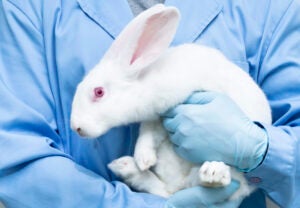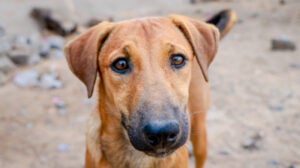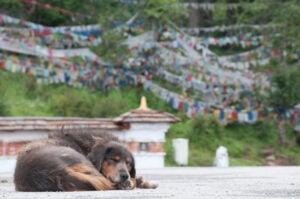Despite being illegal in India, thousands of dogs are killed each year for the dog meat trade. HSI/India exposed this cruelty with shocking video footage from the Northeastern state of Nagaland, where more than 30,000 street dogs and stolen pets are captured, slaughtered and sold in live markets annually.
The dog meat trade in India is exceptionally brutal. Dogs are taken from the streets, and pets are stolen from their communities to supply the trade. The dogs are tied up in jute sacks with only their heads exposed, their mouths either tightly bound or stitched shut to keep them silent. They are then transported many miles to markets on the back of trucks. During the transport, the dogs remain confined in these sacks, deprived of movement, food, and water. Once they reach the market they are displayed in the sack and await slaughter. The killing methods are gruesome, with dogs being clubbed to death out of public view but in full view of other dogs.
Although India’s Food Safety and Standards Act 2006 and associated regulations make the dog meat trade and consumption illegal, the practice persists in some states in India mostly in the Northeastern states.
HSI/India is actively working to end the consumption of dog meat in India, with a particular focus on Nagaland in 2024-2025, where there is increasing support for a dog meat ban. A ban was introduced in Nagaland in 2020 but was overturned by the Kohima High Court in May 2023 following challenges from dog meat traders.
As well as lobbying for re-enactment of the ban, HSI/India’s efforts are centered on stopping the sale of live dogs and dog meat in Nagaland markets, reducing the number of vendors involved by providing alternative livelihood options (many traders are women forced into the trade due to poverty), and curbing the smuggling of dogs from Assam, a primary supply source. Additionally, HSI/India will be working with local organizations and enforcement agencies to strengthen their ability to enforce existing regulations that could effectively reduce the trade.








